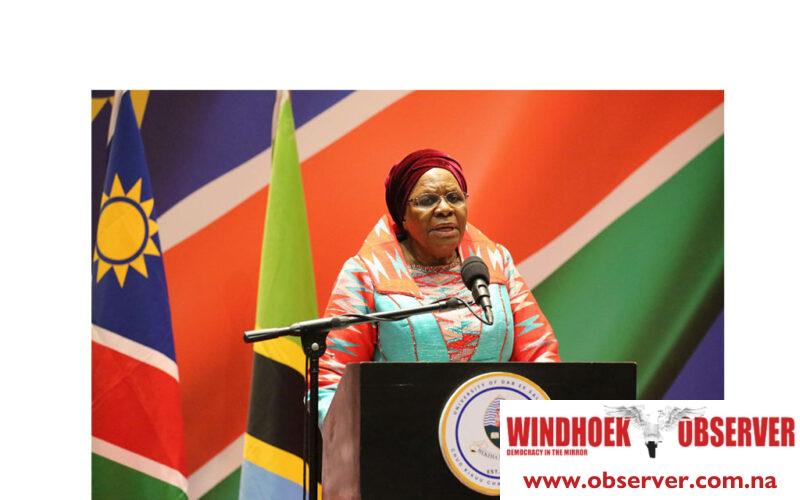Niël Terblanché
President Netumbo Nandi-Ndaitwah has reaffirmed Namibia’s commitment to environmental sustainability.
She also urged all Namibians to take action against plastic pollution, as the country joined the international community in commemorating World Environment Day on Wednesday.
In a special message, Nandi-Ndaitwah warned that plastic waste presents a growing threat to ecosystems, marine life, public health, and long-term development.
“Namibia, as a proud member of the international community, reaffirms its unwavering commitment to combat plastic pollution and accelerate our transition to a cleaner and more resilient environment,” she said.
This year’s commemoration, held under the theme “Putting an End to Plastic Pollution”, brought together experts, learners, and youth representatives for a programme in Swakopmund designed to raise awareness and foster environmental responsibility.
“Indeed, environmental awareness should start at a young age,” she said.
She added that Namibia’s approach to addressing pollution is guided by the Circular Economy Programme, which forms part of the Sixth National Development Plan (NDP6).
The programme is designed to shift away from the linear “take-make-dispose” model and instead promote recycling, resource recovery, and sustainable use of materials.
“We seek to move away from the traditional model and instead promote practices that are regenerative by design,” she said, pointing to the need for long-term strategies that reduce pressure on the environment and promote green economic growth.
Nandi-Ndaiwtah called on the private sector to invest in waste infrastructure to assist with the collection, sorting, and recycling of materials.
She added that such investments would not only support municipal efforts but also create opportunities for green entrepreneurship and employment.
Namibia is also participating in international negotiations to establish a legally binding treaty on plastic pollution.
She said that the country is investing in environmental education.
“Environmental clubs, educational materials, and youth engagement initiatives are being rolled out to build a generation of environmentally responsible citizens,” she said.
She stressed that environmental protection is not the sole responsibility of the government.
“It is a shared obligation. I call upon every Namibian to play their part by reducing plastic use, recycling, educating others and supporting sustainable products and practices. Together, we can end plastic pollution and safeguard our environment for generations to come,” she said.




